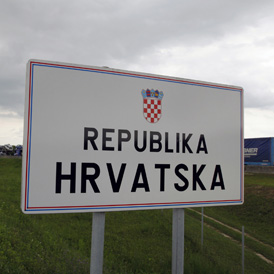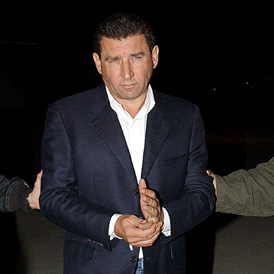EU set to welcome Croatia into the club in 2013
Croatia is expected to join the European Union in July 2013, the European Commission announced on Friday.

Existing EU leaders have been recommended to sign off on the last details of membership talks – which started in 2005 – so the country can join on 1 July, 2013. Croatia would become the 28th member state.
“Today is a historic day for Croatia and for the European Union,” said European Commission president Jose Manuel Barroso.
He added that Croatia’s progress was “a signal to the rest of south-eastern Europe”, sayng: “It shows that enlargement works, that the EU is serious about its commitment, and that structural European reforms in the countries pay off. I therefore hope that Croatia’s progress is an inspiration to our other partners to reinvigorate their reform efforts and to deliver to the benefit of their people.
From its earliest days, your nation has formed part of Europe, and has contributed in its unique way to the spiritual and moral values that for centuries have shaped the daily lives and the personal and national identity of Europe’s sons and daughters – Pope Benedict XVI
“This is also in the EU’s self-interest: a credible enlargement policy remains our most important tool for strengthening mutual stability and prosperity in south-eastern Europe.”
The reference was to the ambitions of Macedonia, Montenegro and Turkey, who are all candidates for inclusion. Iceland is also a candidate.
As an EU member, Croatia, with its 4.4m population, will have the right to 12 seats in the European Parliament, the right of representation and seven votes in the decision-making system in the European Council, as well as the right to one commissioner in the European Commission.
Last week, Pope Benedict XVI gave strong backing to Croatia’s bid to join the EU as he visited the Balkan country.
Benedict said it was “logical, just and necessary” that Croatia join the EU, and Croatians should be “overjoyed to be taking their rightful place in Europe’s political and institutional body, given that Croatia’s entire history and culture is so strongly rooted in that of Europe”.
“From its earliest days, your nation has formed part of Europe, and has contributed in its unique way to the spiritual and moral values that for centuries have shaped the daily lives and the personal and national identity of Europe’s sons and daughters,” Benedict said.
Benedict’s visit to Croatia, which is 90 per cent Catholic, has been seen as a major boost for the government’s EU bid. The Vatican was one of the first countries to recognise Croatia’s independence in 1991.

However, Croatia’s green light has not come without its complications.
Many Croatians became disillusioned with the demands required to join the EU, including that to arrest a war crimes suspect. The anti-EU sentiment came to a head in April after the Hague tribunal sentenced General Ante Gotovina to 24 years in prison for his role in a 1995 military offensive intended to drive Serb rebels out of Croatia’s southern border with Bosnia.
Gotovina has hero status among many nationalists for his role in the battle that sealed Croatia’s independence from Serb-led Yugoslavia after four years of conflict.
-
Latest news
-
Taylor Swift’s new break-up album breaks records3m

-
NHS trust fined £200K for failings that led to death of two mental health patients3m

-
Sunak vows to end UK ‘sick note culture’ with benefit reform3m

-
‘Loose talk about using nuclear weapons is irresponsible and unacceptable’, says head of UN’s nuclear watchdog3m

-
‘There wasn’t an Israeli attack on Iran,’ says former adviser to Iran’s nuclear negotiations team7m

-




